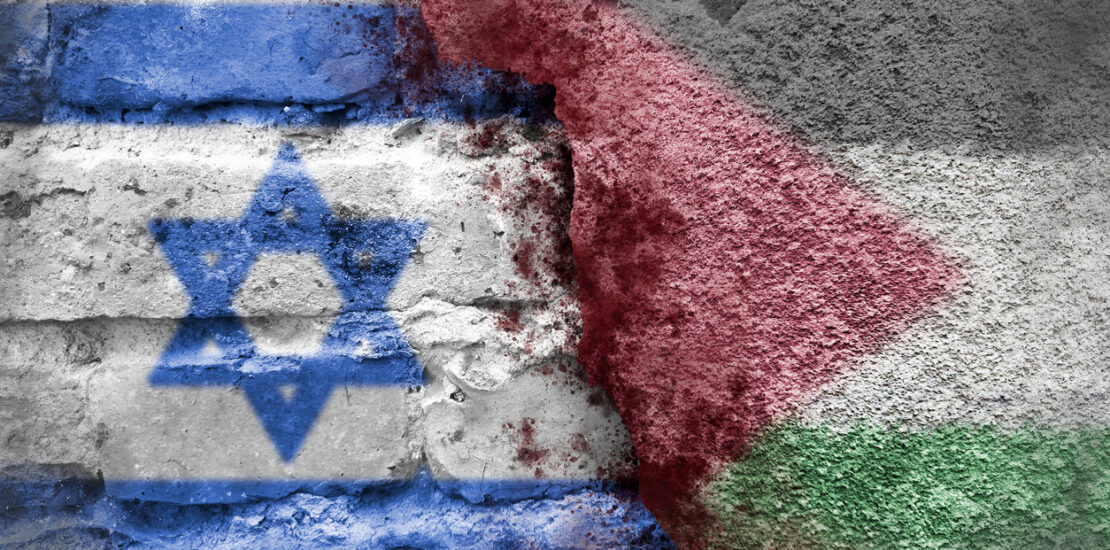ZORAWAR-INDIA’S LIGHT TANK: IS IT ENOUGH?
- July 19, 2024
- Posted by: Lt Gen K J Singh (Retd)
- Categories: India, Israel

Lt Gen K J Singh (Retd)
Eight months after Hamas stormed across the ‘impregnable’ Israeli border defences, unleashed terror and mayhem, and took away 120 hostages, Israel’s response rages on. The attacking IDF has reduced several cities to rubble, killed over 35,000 Palestinians, including women and children, driven the survivors out of their homes and sequestered them in the South. And with the offensive on Rafah, even those areas were rendered perilous for the refugees.
Militarily, the IDF has killed a large number of Hamas terrorists. The space for launching rockets and other attacks against the IDF has shrunk but not eliminated. One of the significant challenges has been the vast network of tunnels that provided a haven to Hamas fighters. Some of these underground tunnels were discovered and rendered unusable, but more remain. Perhaps the remaining hostages are in the surviving subterranean labyrinth.
What is Israel’s strategy to secure a win in this conflict that Hamas unexpectedly triggered on 7 October last year? Warring countries seldom make their strategy public; it can even be argued that the overall strategy may not be fully formed beyond the campaign’s goals at the start of such an offensive. Israel’s strategy can thus only be interpolated from the declared and implied goals. What are these?
Israeli political leadership has stated on more than one occasion that the complete decimation of Hamas and the recovery of the hostages are the two primary goals. Hamas was known to have 30,000 fighters; its ranks have been substantially depleted. On 7 October, no timelines were stipulated for the operation to be completed, at least for public information. It is safe to presume that the idea was to prosecute the operation swiftly since the political hot potato of hostages was in the mix.
There is a subtext to these goals: ensuring that Israel is safe from any future attack from Hamas and restoring the faith of the Israeli public in the political dispensation and the Israeli Defence Force (IDF) to protect it from a similar traumatic experience while ensuring that the country’s allies stay on board with material and diplomatic support.
Before we evaluate Israel’s success or failure to meet those goals, a word about ‘strategy’ as a concept.
Strategy is a roadmap to achieving goals. But this simple statement is not without caveats. The avowed goals must be achieved without incurring inordinate and crippling costs, both in terms of the resultant attrition and long-term fallouts. Strategists must also critically examine if those goals are viable and whether there is a clear understanding of who the target – or the enemy – is. This may sound fundamental, but it is a crucial question. At the culmination, success must be sustainable. And right through the war, the focus must not be lost.
Examining these goals and ideas throws light on the success or otherwise of the Israeli effort so far.
There has been repeated vocal disagreement within Israel’s establishment over the elimination of Hamas, whose core ideas are based on muqawama, or resistance, as an achievable goal. Even last week, the Washington Post quoted an Israel Defense Forces spokesman, Rear Adm. Daniel Hagari, “Hamas cannot be destroyed. Hamas is an idea. Those who think it can be made to disappear are wrong.” Can a terrorist ideology be destroyed by widespread collateral damage inflicted on the populace, thus making it a breeding ground for future terrorists? The proponents of the ‘eliminate-Hamas’ school of thought cite the destruction of Nazis and the LTTE in Sri Lanka. The differences between those examples and the current war are stark: the quantum of forces used to subjugate Germany, thus eliminating the Nazi leadership, and the time taken to remove the LTTE from the scene was different. In neither of the cases, there was any linkage with a hostage situation.
Opposition to Israel’s current strategy has come from within its political rank and file, including the three-member war cabinet. One of the trio, Benny Gantz, resigned, and Prime Minister Netanyahu consequently dissolved the war cabinet. Leaders like Gantz and many others in Israel believe that Netanyahu’s political survival is the real reason for this seemingly endless war.
What has been the degree of success? The signs are not entirely encouraging. After the near-complete destruction of urban infrastructure in north Gaza, reducing these inhabitants to ghost towns, the IDF has had to return to these areas for more operations. It appears that Hamas is capable of returning to the regions cleansed because the Israelis cannot physically hold these. Israeli army units had to come back because of the continuing attacks on the IDF, the most recent being the blast that took the lives of eight Israeli soldiers of the Combat Engineering Corps’ 601st Battalion. Even the use of a hammer has not squashed all resistance. This is not to downplay the heroic efforts of the IDF – Israel has lost over 660 soldiers in the conflict – or the initial spectacular tactical successes. It is merely a statement of facts after eight months of the war. No end is in sight.
The recovery of hostages, too, has been met with partial success. More than 50 Israelis and foreigners continue to be held by Hamas. Several attempts to broker a peace that would lead to the release of these unfortunate individuals have failed because Israel is intransigent on the point of a permanent ceasefire before scrubbing Hamas from the face of the earth, and Hamas knows that hostages are the hand of aces that must not be prematurely played. In the meanwhile, the agony for the hostages and their families continues, with no light at the end of the underground tunnels.
The heavy-handed Israeli approach has alienated the world in general and its allies in particular. But for the fact that this is an election year in the US, the support for Israel might have reduced even more. The US has already sponsored a peace plan that calls for the cessation of all hostilities and even pushed through a UN Security Council resolution. The World Court at Hague has repeatedly spoken of war crimes, and countries like South Africa have made their opposition loud and clear. This begs the question – was there another approach that would have brought success to Israel without incurring such a diplomatic cost?
It can be argued that, in a fit of justified anger, Israel has lashed out at the wrong enemy. Hamas, not the people of Gaza, are the enemy. A more surgical response while making an effort to safeguard the essential well-being of the population would have taken more time – but precluded the costs that Israel is incurring with the current strategy.
And what of the long-term sustainability of Israel’s safety? There appears to be no post-war plan, and repeated requests even by Israel’s cabinet ministers have failed to elicit an answer. Maybe an answer to the question ‘Who will eventually govern Gaza?’ has not been considered.
None of the Middle Eastern countries are inclined to step into this mess, as seen by their studied silence over the ongoing conflict. For Israel or IDF to run Gaza would be unthinkable – Israel had initially vacated Gaza precisely due to the challenges of governability. The Palestinian Authority is not credible even in the West Bank and would hardly be eager to step into Gaza.
And who will rebuild Gaza? Some clues are available from the creation of the Netzarim Corridor, a four-mile-long road just south of Gaza City that runs from the Israeli border to the Mediterranean Sea, by the IDF. Will the IDF occupy this axis forever? Hamas has made the vacation of this corridor a non-negotiable condition for a future treaty.
Curiously, as if its hands were not full, Israel has begun to challenge Hezbollah in Lebanon, threatening to launch another war. To most observers, this is an unnecessary strategic distraction and deterrence rather than opening another front would have been eminently preferable.
Israel may emerge as ‘victorious’ by debilitating Hamas, though the degree of that victory would be unclear. It is also not clear how long that will take or what costs Israel will pay in terms of attrition and loss of diplomatic face forever. One hopes that the remaining hostages will not be among the collateral damage of this war.
Whatever the outcome, this conflict will make for an instructive study for strategists and historians in the future.


Maj Gen Neeraj Bali, SM (Retd)
AUTHOR
Major General Neeraj Bali, Sena Medal, is an Indian Army veteran who served for 37 years as an Infantry officer. He has also been CEO of two companies, a global speaker and is founder of Leadscape Advisors, a corporate leadership training company. He is the author of the bestselling book The Winning Culture – Lessons from the Indian Army to Transform Your Business. Presently, he is the Director of the Chandigarh Tricity-based Gyan Chakra Think tank.
